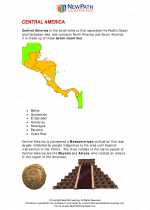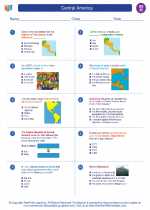Natural Disasters
Natural disasters are catastrophic events that occur due to natural processes of the Earth. These events can cause significant damage to the environment and endanger the lives of people and animals.
Types of Natural Disasters
- Earthquakes: Sudden shaking of the ground caused by the movement of tectonic plates.
- Volcanic Eruptions: The eruption of molten rock, ash, and gases from volcanoes.
- Hurricanes: Powerful tropical storms with strong winds and heavy rainfall.
- Tornadoes: Violently rotating columns of air extending from thunderstorms to the ground.
- Floods: Overflow of water onto normally dry land, often caused by heavy rainfall or melting snow.
- Tsunamis: Large ocean waves generated by underwater earthquakes or volcanic eruptions.
- Droughts: Prolonged periods of abnormally low rainfall leading to water shortages.
- Wildfires: Uncontrolled fires that spread rapidly through forests and grasslands.
Causes and Effects
Natural disasters can be caused by various natural processes such as geological movements, weather patterns, and climate changes. The effects of these disasters can include loss of life, destruction of infrastructure, displacement of communities, and long-term environmental damage.
Preparedness and Mitigation
It is important for individuals, communities, and governments to be prepared for natural disasters. This can involve creating emergency plans, building resilient infrastructure, and implementing early warning systems. Mitigation efforts can also include reducing vulnerability to disasters through land use planning, environmental conservation, and climate change adaptation.
Study Tips
When studying natural disasters, it's helpful to understand the causes, effects, and ways to prepare for and mitigate these events. Reviewing case studies of specific natural disasters can provide valuable insights into the impacts and responses to these events. Additionally, understanding the role of geography, geology, and meteorology in shaping natural disasters is essential for a comprehensive understanding of the topic.
[Natural Disasters] Related Worksheets and Study Guides:
.◂Social Studies Worksheets and Study Guides Eighth Grade. Central America

 Worksheet/Answer key
Worksheet/Answer key
 Worksheet/Answer key
Worksheet/Answer key
 Worksheet/Answer key
Worksheet/Answer key
